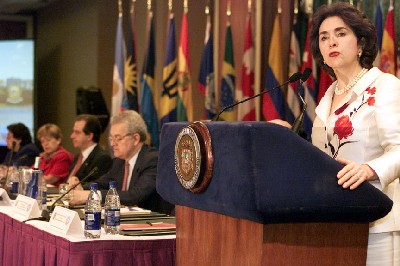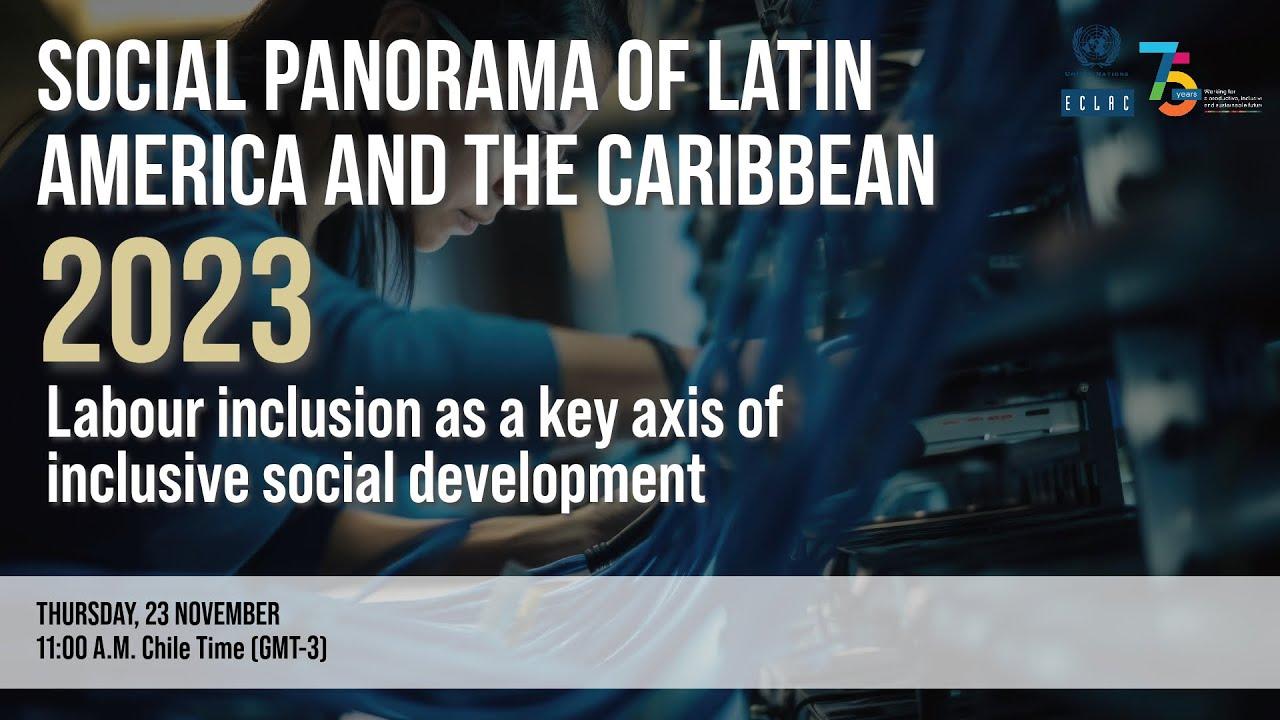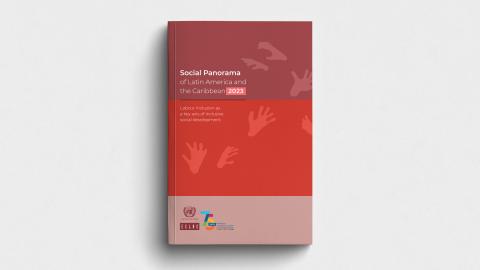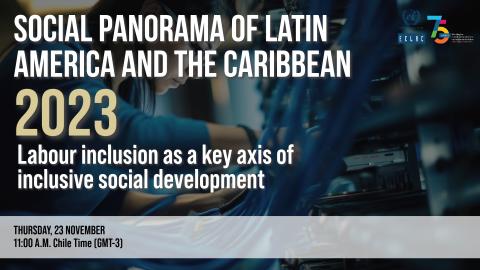video
In the presence of the Governor of the Commonwealth of Puerto Rico, Sila María Calderón Serra, the Economic Commission for Latin America and the Caribbean (ECLAC) officially opened its Thirtieth Session in San Juan, Puerto Rico.
During the event, held in the San Gerónimo Room of San Juan's Hotel Caribe Hilton, the Governor of the Commonwealth of Puerto Rico, Sila María Calderón Serra spoke, along with ECLAC Executive Secretary, José Luis Machinea, and the Ambassador of Brazil in Chile, Gelson Fonseca. Special guests included the Executive Director of the United Nations Population Fund (UNFPA), Thoraya Obaid, and the General Secretary of the United Nations Conference on Trade and Development (UNCTAD), Rubens Ricupero.
In her speech, the Governor called on delegates to strengthen the shared principles and values of democratic governance, to achieve economic development. She added that "the core of democracy" lies in teaching, remembering and strengthening the values that we all consider good. "These principles are essential if we are to ensure that the government is the reflection of the best of ourselves," she said. "Because if a government is to be of the people, for the people and by the people, it has to reflect the people and their best attributes."
Sila María Calderón Serra underlined the importance of improving the basic living conditions of specific communities (the neediest sectors of the population), as well as keeping public finance healthy, fighting public sector corruption and rebuilding citizens' confidence in their institutions and their governments.
For his part, José Luis Machinea underlined the progress in recent decades by Latin American and Caribbean economies, but at the same time emphasized the challenges and issues pending that still prevent the region from achieving better results in its fight against poverty and for equal opportunities for all economic and social actors.
In this sense ECLAC's Executive Secretary said that with this Thirtieth Session, ECLAC is proposing to member and associate states a "road map" capable of articulating active public policies to stimulate productive development, which is the best instrument for creating jobs, income and reducing poverty.
These proposals are contained in the study Productive Development in Open Economies, presented by ECLAC to all the country delegates present at the meeting.
To analyze its contents during ECLAC's Thirtieth Session, a High-Level Seminar on Productive Development in Open Economies, will also take place today in San Juan, with the participation of senior governmental representatives from the region and international bodies. These include ECLAC Executive Secretary, José Luis Machinea, the President of the Inter-American Development Bank (IDB), Enrique Iglesias; the Deputy Secretary General of the United Nations for Economic and Social Affairs, José Antonio Ocampo; the Secretary General of the United Nations Conference on Trade and Development (UNCTAD), Rubens Ricupero; and Puerto Rico's Secretary of State, José Miguel Izquierdo Encarnación.
The Thirtieth Session is being held in San Juan, Puerto Rico, from 28 June to 2 July 2004 with the participation of 300 delegates from 41 member and seven associated states of this regional United Nations commission, along with representatives of United Nations specialized bodies, non-government organizations and special guests. Official delegations will include ministers of education, the economy, labour, planning and foreign relations from different countries, along with other authorities from the different countries. On Friday 2, after the general debate, final resolutions will be passed.
This meeting, ECLAC's most important, takes place every two years. During the session, member states examine the progress of activities during the previous two years and approve the work plan for the next period. Moreover, it offers an opportunity for them to discuss issues important to the development of the region's countries.



